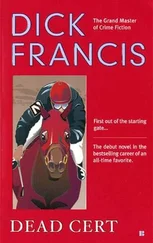“It has to be to pass the health inspection. Most domestic kitchens wouldn’t be allowed to cook food for a restaurant. There would be far too much dirt and grease. When did you last clean the floor under your refrigerator?” I pointed at the kitchen fridge we used exclusively for raw poultry.
She shrugged her shoulders. “No idea.” Round two to Moreton.
“Well, the floor under that fridge was cleaned yesterday. And it will be cleaned again today. In fact, it is cleaned every day except Sundays.”
“Why not on Sundays?” she asked.
“My cleaner’s night off,” I said. What I didn’t tell her was that I was the cleaner and I never worked on Sunday evenings. Carl ran the kitchen then, as I went home and rested after the busy Sunday lunch service.
She relaxed a little more and even rested her left hand on the work top. “So how come,” she said in an accusing tone, “if everything is so clean, you managed to poison so many people and had this place shut down for decontamination?” Round three to Harding.
“The food wasn’t cooked here, for a start,” I said. “The event was at the racetrack, and a temporary kitchen was set up there. But it was still as clean as this.”
“But it couldn’t have been,” she said. I didn’t respond. She pressed the point. “So why did all the guests get food poisoning?”
I decided not to mention anything about the elusive kidney beans, so I said nothing at all and simply shrugged my shoulders.
“Don’t you know?” she said in apparent amazement. “You poisoned upwards of two hundred people and you don’t know how?” She rolled her eyes. Round four to Harding. But we still were all square.
“I prepared that meal from basic ingredients,” I said, “and everything was fresh, clean and thoroughly cooked. I made everything myself, except the rolls and the wine.”
“Are you saying it was the bread that made people ill?”
“No, I’m not,” I said. “What I am saying is that I don’t understand how the people were made ill, and I stake my reputation on the fact that I would do exactly the same if I was preparing that dinner again tonight.” First knockdown to Moreton.
She came up punching “But there’s no doubt that people were ill. Fifteen were admitted to the hospital and one person died. Don’t you feel responsible for that?” It was a body blow, but I countered.
“There is no doubt that people were ill. But your paper was wrong to report that someone died as a result of the dinner. They didn’t. And what’s more, only seven people were admitted to the hospital, not fifteen.”
“Fifteen, seven-it doesn’t matter exactly how many. It doesn’t change the fact that some people were made so ill they needed hospital treatment.”
“Only as a result of dehydration.” I knew as I said it that it was a mistake.
“Dehydration can kill very quickly,” she said, pouncing. “My great-uncle died from kidney failure brought on by dehydration.” Second knockdown, this one to Harding.
“I’m sorry,” I said, recovering. “But I assure you, no one died from being ill due to my dinner. Perhaps I could sue you for writing that.” Moreton lands a right hook.
“Then why did a source at the hospital say that someone had?”
“It seems that a man did die on Friday night from something that was originally thought to be the food poisoning but turned out not to be. He hadn’t been at the dinner. He died from something else.”
“Are you sure?” she said suspiciously.
“Absolutely,” I said. “You should check with the hospital.”
“They wouldn’t tell me,” she said, “due to their damn privacy policy.”
“Then you’d better ask your unofficial source,” I said. “It was because of that same incorrect and damaging information that the Food Standards Agency shut down this kitchen, in spite of it not being where the dinner was even cooked. You can see for yourself how clean it is.”
“Mmm,” she mused. “I have to admit that it doesn’t seem very fair.” Another round to Moreton.
I pressed home my advantage. “And I was ill too. Do you really think I would have eaten the food myself if I had any thoughts that it might contain toxins?”
“How about if you were ill before you cooked it. It may have been that it was you that contaminated everything and not the ingredients.”
“No, I’ve thought of that,” I said. “I wasn’t ill beforehand, and my symptoms were exactly the same as everyone else’s. I was poisoned in the same way by the same thing. I just don’t know what.” I poured myself another cup of coffee and held out the pot to her. She shook her head. “So will you write a piece for your paper that exonerates my restaurant?” I asked.
“Maybe,” she said. “It depends. Will you give me any interesting new angles on the racetrack bomb blast?”
“Maybe,” I echoed. “If you promise to print it all.”
“I can’t promise anything without it going through the editor,” she said, and smiled. “But since he’s my husband, I ought to be able to swing it.”
Damn, I thought, another possible romantic opportunity had just slid past me. I quite liked the feisty Ms. Harding. What a shame she was a Mrs.
Carl and Gary needed to get into the kitchen to start preparing for lunch, so Mrs. Harding and I went back to the bar for the rest of the interview, but not until I had insisted on having my photograph taken in the kitchen with as much gleaming stainless steel in the background as I could manage.
I gave her the new angles on the bombing that she had hoped for without fully recounting the graphic details of the blood and the gore. I told her a little about MaryLou, and how horrible it was to have discovered afterwards that she had died. I tried to describe the frustration of not knowing how to cope with the situation without actually admitting to having been a sobbing, shaking wreck.
Finally, she looked at her watch, closed her notebook and said she had to dash, since she had things to finish before the newspaper went to press.
“This will not make it into today’s,” she said. “Look for it tomorrow.”
“Fine,” I said. We shook hands, this time without even the slightest hesitation on her part. “Have you ever been here to eat?” I asked her.
“No, never.”
“Then come as my guest. Bring your husband. Anytime you like.”
“Thank you,” she said, smiling, “I’d love to.”
Moreton wins by a knockout.
A ngela Milne called first thing on Thursday morning, and I could tell at once that she was more than slightly irritated at having received my message. She told me in no uncertain terms that the testing at the hospital was not wrong or mistaken, and that I should look at myself carefully in the mirror and ask who is fooling who here.
“You served kidney beans that hadn’t been properly cooked,” she said. “Why don’t you just admit it?”
Was I going mad? I knew there were no kidney beans in that dinner. Or did I? What I was absolutely sure of was that I hadn’t put any kidney beans in it myself, cooked or otherwise. Could I be so sure that no one else had? But surely, I thought, I would have seen them. Red kidney beans are pretty obvious, as anyone who has eaten chili con carne can testify. Perhaps they had been chopped up and added by someone. But why? And by whom?
There had been plenty of us in the kitchen tent that night, not just my usual team. There had been at least five or six temporary assistants plating the meals, and all the waitstaff had had access as well. Most of these had been from a catering agency, but some were friends of my crew, and one or two had been late recruits from the racetrack caterers when others had dropped out. Did someone purposely poison the dinner due to some catering war? Was it jealousy? Surely not. It just didn’t make sense. But I was increasingly steadfast in the knowledge that since I hadn’t put the beans in that dinner, someone else must have.
Читать дальше












